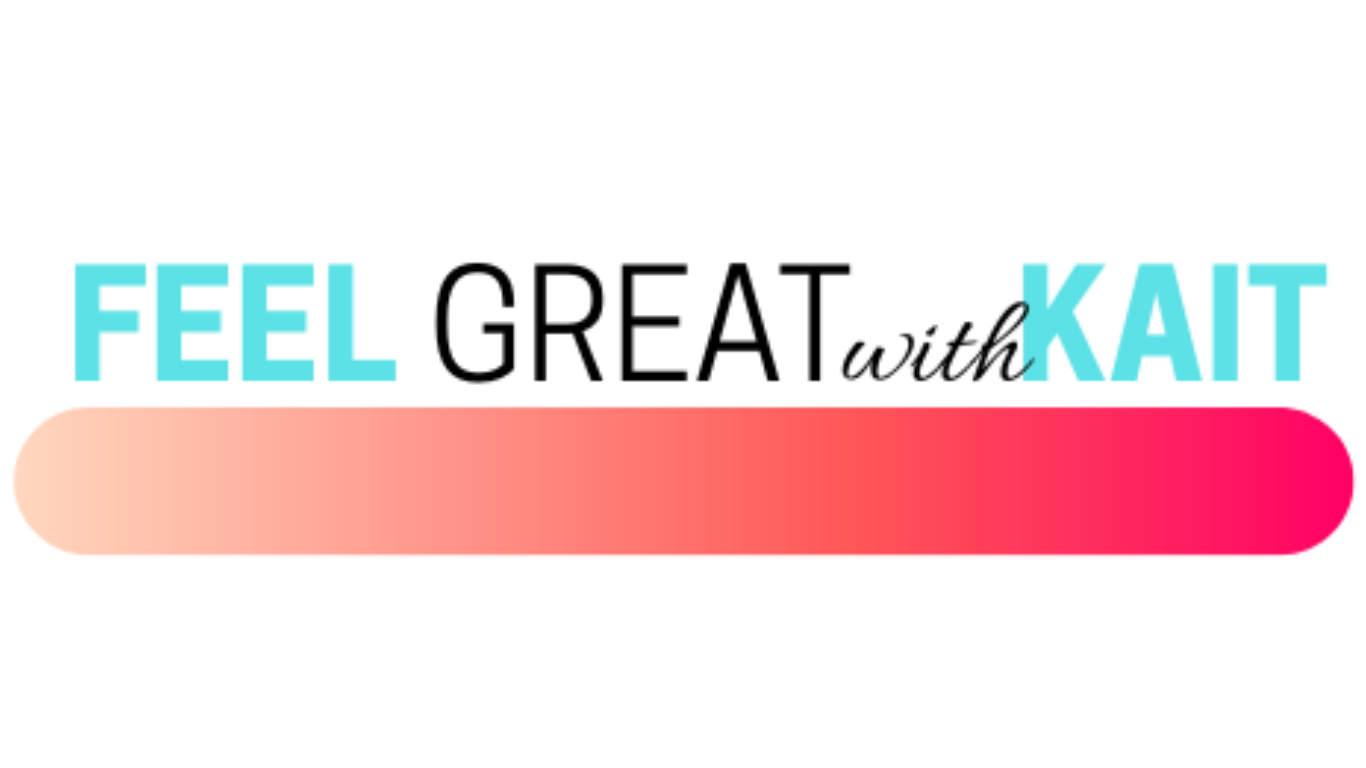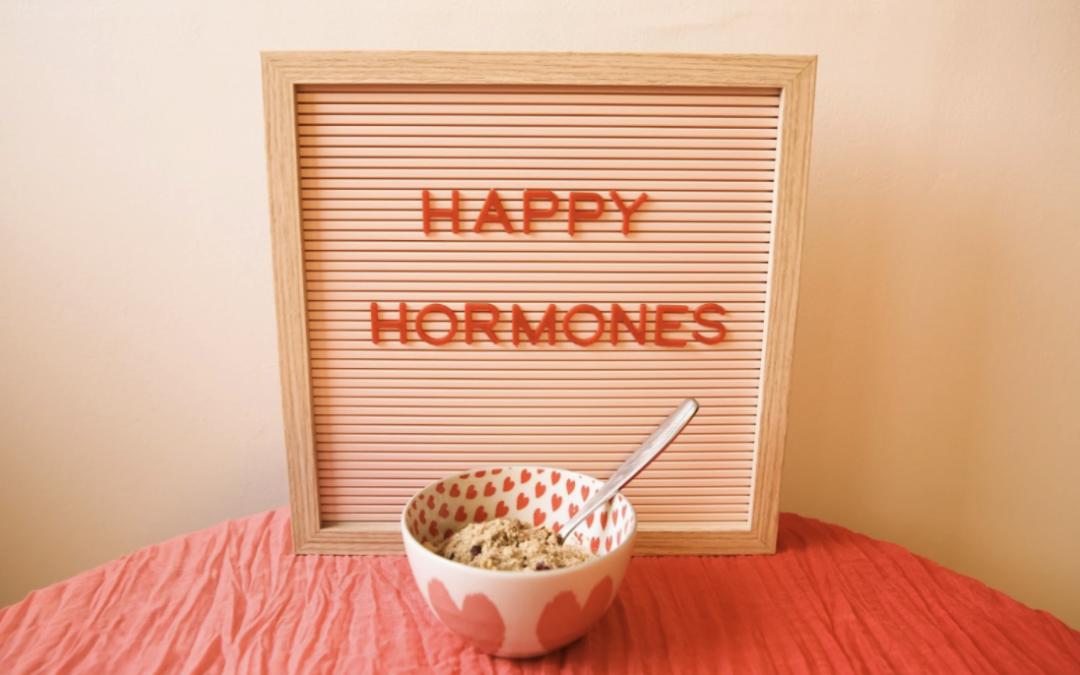Did you know that the body produces over 100 hormones? Hormones have a bad reputation because society usually only talks about them in relation to bad mood swings, specifically in women around that time of the month. However, hormones play a very important role in our bodies every day; they are responsible for the communication between different cells and organs that allows our body to function by giving valuable instructions and information.
That’s great and all but why should you care? When blood sugar is chronically elevated it impairs the body’s ability to regulate hormones and often leads to insulin resistance which causes cellular damage, ultimately leading to undesirable symptoms. To understand how blood sugar impacts the endocrine system we’ll need to look at both the impact of proper function and dysfunction of blood sugar on hormones.
Proper Function – Homeostasis between blood sugar and hormones
Balanced blood sugar refers to the natural rise and fall of your blood sugar levels within a normal range as a result of eating food or not eating food. The normal range is between around 100 – 140 mg/dL of blood glucose depending on if you just woke up (ie are fasted from not eating all night) and or if you just had a meal.
When you eat food that has carbohydrates, your body digests them by breaking them down into glucose, a simple form of sugar. When glucose enters the bloodstream, blood sugar rises, and because there are excess glucose levels that the body needs for normal functions it wants to store most of it for energy later. To do this, the pancreas secretes a hormone called insulin into the bloodstream to enable cells to take in the glucose; most cells are unable to use glucose without the help of insulin (1). Insulin does its job, the glucose is stored, and blood sugar decreases returns to or close to what it was before eating.
In between meals, your body gets access to the previously stored energy by signaling the glucose to be released back into the bloodstream. It does this by the pancreas secreting another hormone called glucagon. “Glucagon instructs the liver to convert glycogen to glucose, making glucose more available in the bloodstream” (1).
Insulin = Energy Storage
Glucagon = Energy release
Proper function of the body’s blood sugar allows other hormones to do their job. There are 50 different hormones working every minute in your body. They are transported from various glands/cells that produce hormones via blood to other parts of the body. Once they are don’t with their job, they are cleaned out of the blood in one of two ways: 1) inactivated by the liver or 2) removed from the body by the kidneys excreting them through the urine. Key functions that are dependent on hormones include: sleep, digestion, sexual maturity and fertility, mood, just to name a few that impact our lives every day.
Quick tip
If you’re curious about what your blood sugar levels are throughout the day, you can easily test this by buying a blood glucose meter kit that you can use at home by extracting a drop of blood from your fingertip. There are a lot of options so pick one that’s accessible and affordable for you. Here is the best seller on Amazon: Care Touch Diabetes Testing Kit. There are other options that provide continuous monitoring and don’t require a prick to your finger like the Freestyle Libre and Continuous glucose monitor (CGM) but these are often more expensive and not necessary if you don’t have prediabetes or Diabetes.
Next, let’s look at what kind of food supports balanced blood sugar. Below are guiding principles to consider when eating to balance blood sugar:
- Eat meals with all 3 macronutrients: Fats, Carbohydrates, and Proteins
- Fats are digested more slowly which will slow the absorption of the glucose from the carbs. This is ideal since it doesn’t require your body to produce as much insulin as fast.
- Protein helps you feel fuller and satisfied and decreases the desire to overeat
- Eat a diverse mix of carbohydrates including ones with fiber
- The highest quality comes from grains, root vegetables (like sweet potatoes, beets, carrots), and legumes
- Eat the whole fruit/veggie and limit juice, soda or other sugary drinks
- Drinking juice robs your body of the fiber and some nutrients, which causes blood sugar to spike higher than it would have had you eaten the whole fruit or veggie
- Avoid highly refined carbohydrates
- Not all carbs are created equal – refined flours and grains are found in all too many foods these days, like crackers, chips, cookies, protein bars
- Even worse, they are often accompanied with additives like Natural Flavors and MSG that signal your brain to keep eating and promotes overeating – ever feel like you can’t stop eating chips? That is why…
- Read the labels and avoid foods with added sugar
- You’d be shocked to know that sugar in some form (high fructose corn syrup, honey, brown rice syrup, etc) is found in MANY foods even those you wouldn’t expect like: yogurt, granola, condiments, sports drinks, and coffee drinks
- Check out this article: 18 Foods and Drinks That Are Surprisingly High in Sugar
- Food manufactures are required to include the amount of “added sugars” in grams and the percent of Daily Value on the Nutrition Facts label (2). See below for an example:

As we’ve just learned, there are two hormones – insulin and glucagon – that play a role in balancing blood sugar. That’s only half the story of how hormones and blood sugar impact each other. The other side is the impact that blood sugar has on hormones. To understand this and its significance, let’s dive into what happens when blood sugar becomes unbalanced and how it impacts hormones.
Dysfunction – Unbalanced blood sugar impact on hormones
Do you have days where coffee doesn’t seem to wake you up but then at night you’re too wired to sleep? This is a sign that your body is stressed and your blood sugar is imbalanced. Managing the body’s blood sugar is critical in order for certain hormones to work properly. One key reason is that if the blood sugar is chronically elevated or has large swings regularly this causes our cells that normally respond to insulin to become insulin resistant. This forces the pancreas to overcompensate and produces more and more insulin which results in blood sugar dropping too low. Low blood sugar then signals the adrenal glands to produce a hormone called cortisol to raise blood sugar. It becomes a vicious cycle that causes inflammation, oxidative stress, and damage to organs that have been linked to increased risk of Cardiovascular disease.
Over time the pancreas becomes exhausted and can’t produce enough insulin to store all of the glucose in the blood. Both of these things contribute to chronic blood sugar levels, which can lead to Type 2 Diabetes.
Another key reason when the body is stressed from emotional, environmental, or dietary stressors, cortisol gets released, and when this happens too much over time, it causes the fat and muscle cells to become damaged. All of these factors contribute to insulin resistance which causes dysfunction – in men, this leads to increased estrogen, and in women, this leads to increased testosterone (3).
Quick tip
Support your body’s hormones by avoiding these common environmental stressors:
- Eat organic when possible
- It amazes me that we need a label for food that doesn’t contain added chemicals, instead, we call food that has the chemicals by just its name
- Non-organic food contains harmful chemical fertilizers like Round-Up (Glyphosate) that have been proved to increase the cancer risk by 41% (4)
- Look up your water quality on the Environment Working Group’s Tap Water Database to find out the quality of the water in your area and if a water filter is needed
- I recommend a Reverse Osmosis (RO) water filter but activated charcoal could be a good option depending on what specific containment are in your water
- For more information on water, files go to EWG’s Water Filter Guide
- Consider getting an air filter
- Most people are spending more time at home these days, an air filter can significantly reduce the amount of dust and air pollutants in your home
- Avoid toxic chemicals including products you put on your skin (cosmetics, sunscreen, bug spray, etc).
- This includes smoking and alcohol
For more information go here: EWG’s Guide to Sunscreens
Call to action
Strive to keep your body’s blood sugar balanced to ensure that your body’s hormones also stay balanced. This will keep you feeling your best. Do this by managing stress and eating a balanced diet following the principles listed above.
References:
- Villines, Z. Mar 27, 2019. How insulin and glucagon regulate blood sugar. Medical News Today. https://www.medicalnewstoday.com/articles/316427#ideal-blood-sugar-levels.
- 2019. Fact Sheet with Sample Labels. FDA. https://www.fda.gov/food/cfsan-constituent-updates/fda-issues-final-guidance-regarding-declaration-added-sugars-nutrition-facts-label-honey-maple-syrup
- 2020. Endocrine Student Lecture – Dysfunction. Nutritional Therapy Association.
- Louping, Z., Lemaan R., Shafferb, R., Taiolic E., Sheppardbd L. Feb 2019. Exposure to glyphosate-based herbicides and risk for non-Hodgkin lymphoma: A meta-analysis and supporting evidence. Science Direct. https://www.sciencedirect.com/science/article/abs/pii/S1383574218300887
Healthy Habits on the Go: Managing Competing Priorities
Managing competing priorities and maintaining your health while traveling can be hard. Discover tips for balancing sleep, exercise, and more.
Healthy Habits on the Go: Eating Healthy While Traveling
Learn how to maintain a healthy diet while traveling. From packing snacks to navigating airport food, stay energized and on track on the go!
Healthy Habits on the Go: Smart Packing Tips and Essential Supplements
Explore healthy packing tips and tools to maintain your wellness goals on the go, including essential supplements and a smart packing list.
Healthy Habits on the Go: Strategies for Staying on Track When You’re Off Your Routine
Traveling, especially for business, presents unique obstacles to maintaining a healthy routine. Discover strategies for sticking with healthy habits on the go.
Why you should care about the Nutritional Foundations as a young, healthy person
According to the CDC, about 80 percent of older adults (above age 65) have at least one chronic disease and 68 percent have at least two.







Im very pleased to find this site. I need to to thank you for ones time for this particularly fantastic read!! I definitely really liked every part of it and I have you bookmarked to see new information on your site.